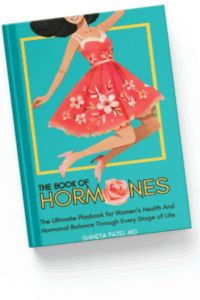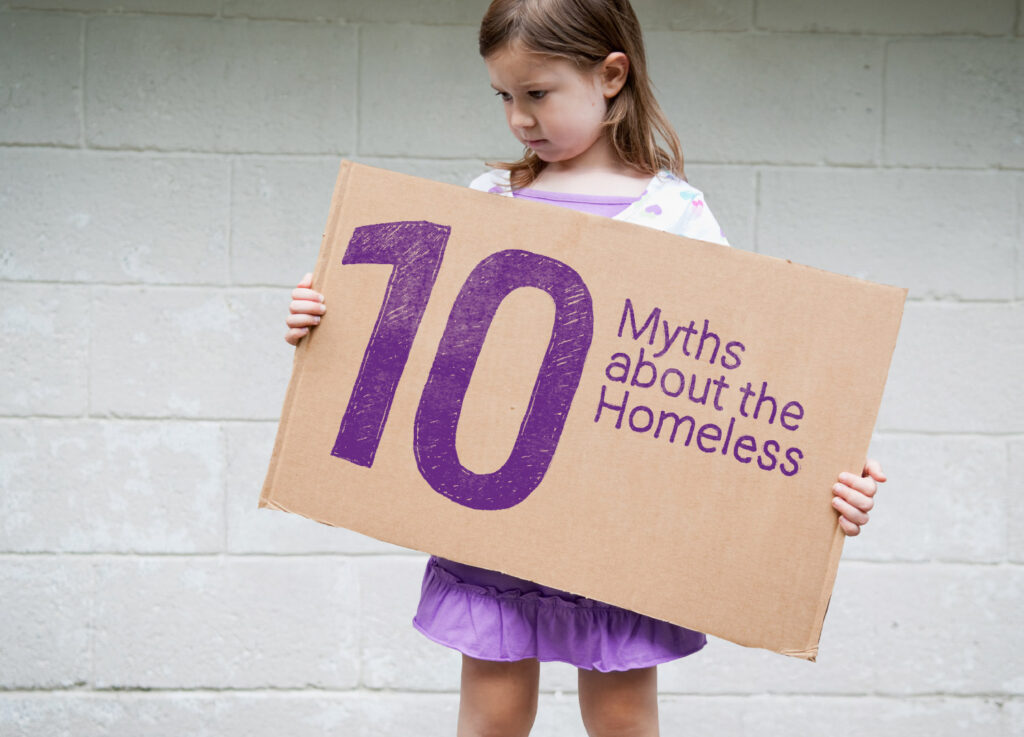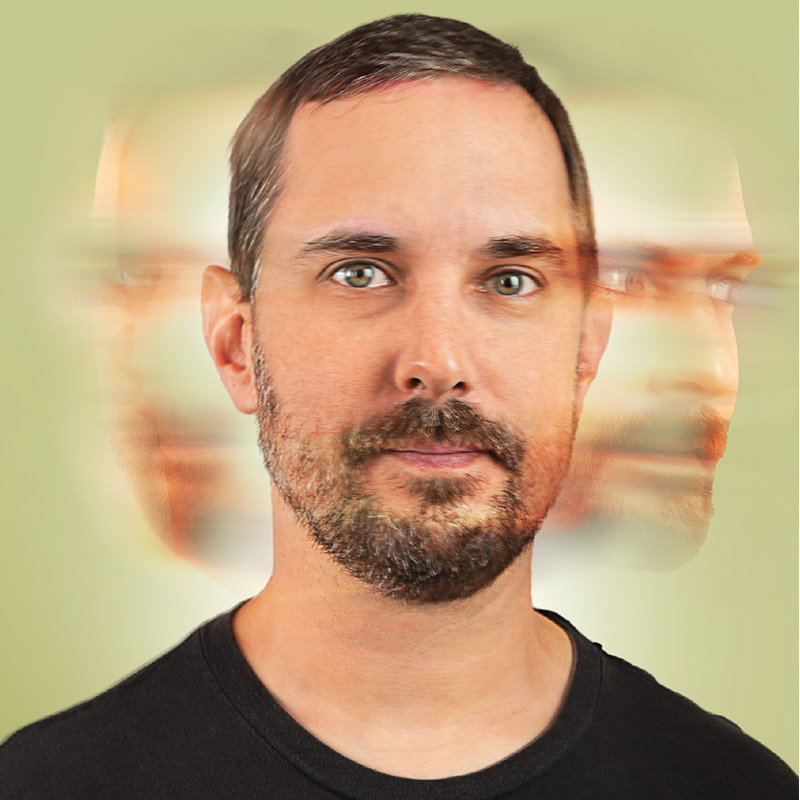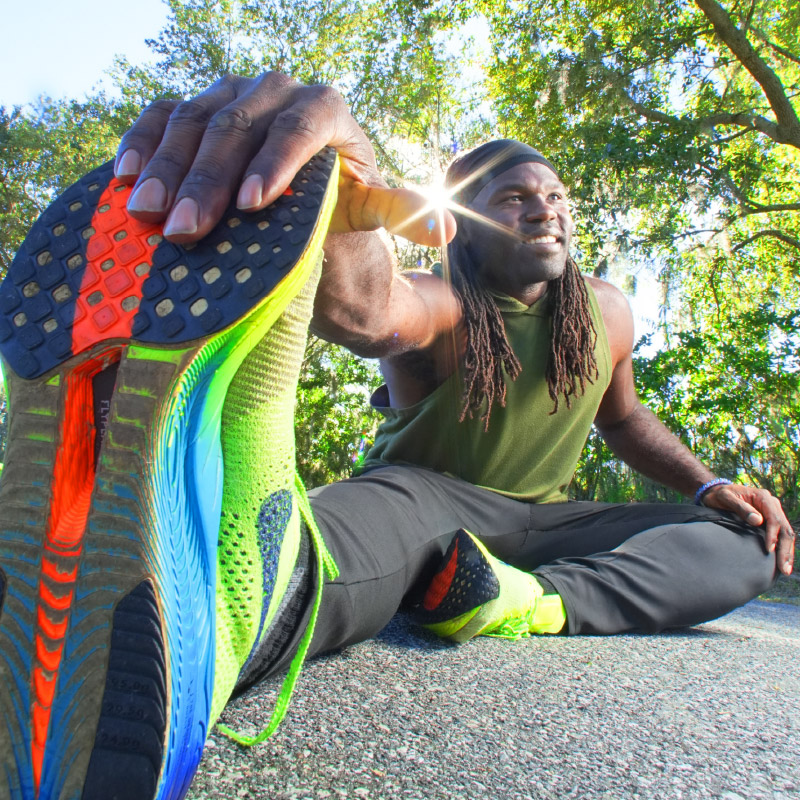
You wake up one morning and something’s … off.
You’re not sick. But you’re not fine either. Your brain is foggy, your sleep’s gone rogue, your temper is shorter than usual, and your go-to wellness routines have suddenly stopped working. You say it out loud—“I don’t feel like myself”—and even as the words leave your mouth, you see it: that polite, patronizing nod from across the exam table.
Sound familiar? By her mid-30s, OB/GYN Dr. Shweta Patel found herself living the very story her patients were telling her—exhausted, foggy, and not quite herself.
“I came back from a hormone therapy course with a testosterone pellet in my own hip,” she says with a laugh. “Not exactly ideal timing when you’re single and in your 30s.”
Shweta hadn’t always been a believer in hormone replacement therapy (HRT). Like many doctors trained in the early 2000s, she was taught to avoid it.
“We were told menopause was natural—something to just white-knuckle through,” she recalls. “And after the 2002 Women’s Health Initiative study, HRT got slapped with a warning label: increased risk of stroke, heart disease. It scared everyone. That soundbite stuck—hormones are dangerous.”
So, like many of her colleagues, she stayed away. Until her own symptoms—and a deeper look at the research—made her think twice.
In 2019, Shweta began experimenting with testosterone pellets as what she calls a “backdoor way” to treat hormonal symptoms—without triggering the fears surrounding estrogen. “At first I thought, testosterone for women? Really? But I tried it. And—whoa. This stuff is potent.”
The experience was eye-opening. “Energy returned. Libido came back. For the first time in years, women said they felt like themselves again—sort of.”
That “sort of” is important.
“It didn’t exactly make them feel like themselves,” Shweta explains. “It made them feel different. Like they borrowed a male brain for the weekend.”
Testosterone brought a calm, focused energy—a steady hum beneath the surface chaos. But it wasn’t the full picture.
“It’s like giving someone a Lamborghini when what they asked for was a Mercedes,” she says. “It’s fast and exciting, but it’s not quite you.I knew that estrogen had to play a role, but I just wasn’t sure how.”

The real shift came when Shweta began researching her book, The Book of Hormones: The Ultimate Playbook for Women’s Health and Hormonal Balance. She didn’t set out to write about menopause—she set out to understand hormones in their entirety. The full arc: puberty, pregnancy, PCOS, perimenopause, postmenopause.
Now, she sees HRT not as something to fear, but as a powerful tool—when used thoughtfully—to help women feel balanced, healthy, and whole.
“It started clicking,” she says. “We treat estrogen like it’s one thing. But it’s not. There are multiple forms. Some are protective, some are harmful. They work in completely opposite ways.”
The kind of estrogen your ovaries make in your 20s? That’s brain-boosting, mood-stabilizing, metabolism-supporting magic. The estrogen your fat cells produce in midlife? That’s another story.
“One builds furniture,” she says. “The other annihilates it.”
So when the good estrogen drops in perimenopause—and your body tries to compensate—things get chaotic.
“It’s like your body stops being on your side,” Patel says. “Women who’ve never struggled with weight suddenly gain 10 pounds doing nothing differently. Their sleep tanks. Their brains feel broken.”
And worst of all? It’s usually dismissed.
“Perimenopause used to be something whispered about in your 50s,” she says. “Now we realize it actually starts in our late 30s and early 40s. But instead of recognizing it, we call it stress. Or burnout. Or tell women they just need to sleep more.”
Some women hit a hormonal wall after stopping birth control. Others suffer through hot flashes, night sweats, anxiety, and brain fog—without anyone naming the cause.
“They’re told to tough it out, or take an antidepressant. It’s maddening,” she says,
But here’s the part that gets left out: HRT can be safe. And transformative. If done right.
“The problem isn’t the hormones,” Patel says. “It’s the way we talk about them. The way we’re trained to ignore women’s symptoms until they’re ‘bad enough.’”
Her 440-page deep dive into female hormones was written as a kind of reclaiming: a reminder that it’s OK to want to feel good in your body. That the old rules deserve to be questioned. That better is possible.
“Yes, hormones are complicated,” she says. “But so are we. Women aren’t just smaller men with glitchy ovaries. We’re biologically brilliant. We just need medicine to catch up.”
The System Wasn’t Built for You
According to Shweta, the problem isn’t just outdated training—it’s structural.
“Our healthcare system isn’t designed to make you well,” she says. “It’s designed to keep you from dying. And that’s a massive difference.”
In other words, if you’re not actively seizing or bleeding out, your symptoms often get pushed aside.
And hormone issues—especially during perimenopause—rarely show up in tidy lab results. So providers move on.
“There’s no time or incentive to dig deeper,” she explains. “So if your blood work looks ‘normal,’ you’re told you’re fine—even when you’re falling apart.”
If you’re the woman sitting in that exam room, feeling invisible? You’re not crazy. You’re not broken. And you don’t need anyone’s permission to ask for more.
“Somewhere along the way, we were told that Googling our symptoms is irresponsible. That asking questions is pushy. That we should just trust the process,” Shweta says. “Squash that. Do the research. Use AI. Read the books. Download my new app, and show up with a list. Be the bother.”
It’s not about challenging your provider, it’s about advocating for yourself and partnering with them to find a solution. “You don’t have to know everything,” she says. “But you do have to show up for yourself. If your doctor doesn’t listen, or doesn’t help? That’s not the end of the story. That’s your sign to find someone who will.”
Yes, that might mean switching doctors. More than once. But that’s not failure—it’s strategy.
“Maybe they’re burned out. Maybe they weren’t trained in this,” she says. “But that doesn’t mean you stop.”
The good news? There’s a movement growing. More women—including physicians like Shweta—are pushing back on the narrative that suffering is just part of being female. They’re asking better questions. Demanding better care.
Until the system changes, this is how we change it—from the inside out.
Your hormones may be ghosting you. But you don’t have to disappear with them.
Michael Hodges—friends call him “Kasper”—has the kind of energy that makes you rethink your own life choices. At 48, he’s not just keeping up with the younger guys at the gym. He’s leading the pack. Coaching football. Mountain biking. Living like his joints have a pact with the devil.
“I’m probably stronger now than I was in my 20s,” he says.
The secret? It’s not a new pre-workout or a sketchy backroom supplement. It’s testosterone replacement therapy (TRT)—and it’s been part of his life for over a decade.
While most people were still whispering about “low T” behind closed doors, Kasper was already in deep with Age Rejuvenation, turning lab results into a game plan. “January marked 10 years since I started,” he says proudly. “It’s the best decision I’ve ever made for my body, mind, and life.”
But this isn’t a story about shortcuts or miracle cures. It’s about what happens when you stop accepting “normal” as good enough—and start chasing optimal. And to understand the bigger picture, we sat down with the woman who helped make that possible: Mar Davis, APRN, hormone whisperer, and Kasper’s provider at Age Rejuvenation.

“Men have estrogen, too. It’s crucial for brain health, mood, and sexual function”
—Mar Davis, APRN

The Wake-Up Call
Kasper’s journey started like it does for many men: with a slow burn of symptoms that didn’t feel “bad enough” to see a doctor about—but never went away.
“I was in my late 30s, still active, still functioning—but I was dragging. Low energy, sore joints, zero recovery,” he recalls. “I chalked it up to aging or military wear and tear. But when I got my labs back? My testosterone was way below where it should’ve been.”
That first visit turned into a nine-page blood panel breakdown—and a customized roadmap out of the fog.
“They go through it line by line,” Kasper says. “Most doctors throw a number at you. These guys tell you what it means, how it affects you, and what you can do.”
That “deep dive” approach is what Mar is known for. With over a decade in hormone therapy, she’s seen firsthand how many men settle for feeling less than themselves.
“Men come in thinking they’re just tired or stressed,” she says. “But it’s not normal to feel like a zombie by 3 p.m., or to lose your edge in your 30s or 40s. That’s not aging—that’s imbalance.”
And it’s not just testosterone. Mar checks thyroid function, cortisol levels, insulin sensitivity, vitamin D (which she calls “the most underrated hormone”), and even estradiol—yes, estrogen.
“Men have estrogen, too,” she explains. “It’s crucial for brain health, mood, and sexual function. We don’t just look at testosterone—we treat the whole system.”
As Kasper’s journey evolved, so did his protocol. Peptides—short amino acid chains that stimulate natural hormone production—became part of his toolkit. “It helped with old injuries from the military that never fully healed,” he says. “It was incredible.”
Indeed, Mar says that peptides remain one of the most exciting frontiers in male health.
“Peptides can help with fat loss, muscle gain, libido, recovery—you name it,” she says. “When paired with hormone therapy, they can take your results to another level. But you need a provider who knows what they’re doing. This isn’t DIY territory.”
Breaking the Bro Myths
If you think TRT is just for aging bodybuilders with shrink-wrapped abs, Kasper’s got news for you: “You don’t wake up jacked. This isn’t about becoming a Marvel character,” he laughs. “You look like you—just the version of you that sleeps better, thinks clearer, and doesn’t get winded doing everyday tasks.”
Mar agrees: “Most of my patients are regular guys—dads, teachers, small business owners. They just want their life back.”
Still, stigma lingers. Fear of needles. Worries about fertility. Horror stories about ‘roid rage’ and hair loss.
“Yes, testosterone slows down your natural production while you’re on it,” Mar explains. “But you can come off it. There are protocols for that. The key is being educated and working with a real medical team—not someone selling vials from their trunk.”
“I’ve had two men in their 50s,” Mar says. “One had a testosterone level of 300 and felt amazing. The other was at 500 and felt awful. Numbers are a tool—but how you feel is what we care about.”
Kasper’s bloodwork is monitored every 12 weeks to fine-tune his therapy. “It’s not one-size-fits-all,” he says. “It’s trial and error, with a team that actually listens.”
That personalized care is what keeps him moving, lifting, and living at full throttle. “I’m not trying to turn back time,” he says. “I just don’t want to waste what I’ve got left. And now, I’m making the most of it.”
The Bottom Line: From Fine to Phenomenal
Here’s the thing: You don’t need to be falling apart to consider hormone therapy. In fact, the earlier you notice something’s off, the better.
“Testosterone starts dipping in your 30s,” Mar says. “And the earlier we intervene, the easier it is to restore balance.”
For Kasper, TRT wasn’t about vanity—it was about vitality. And it didn’t make him someone new. It brought him back to himself.
“People ask, ‘Why would you go on something for life?’” he says. “And I say, ‘Why wouldn’t I want to feel my best for as long as I can?’”
Mar puts it simply: “We’ve been taught to accept decline. But what if aging didn’t have to mean giving up? What if it meant evolving—and getting better? Forget what’s normal,” she says. “We want you to feel better than normal. We’re going for optimal, even phenomenal.”





